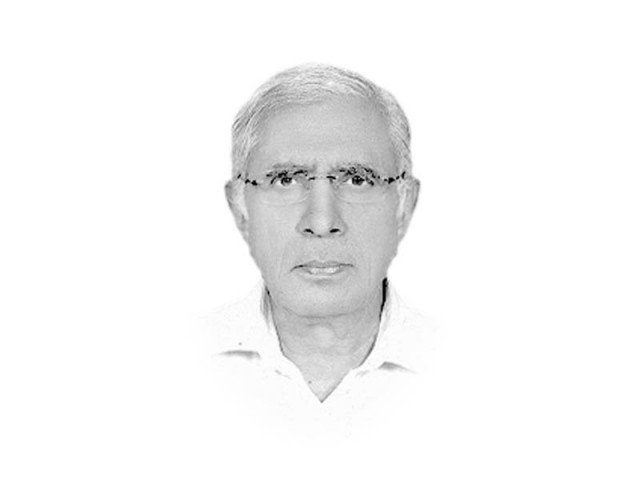The TRC report
Pakistan is surviving on bailouts from the IMF due to perpetual failure of the ruling elite to tax the rich and mighty

The writer served as Executive Editor of The Express Tribune from 2009 to 2014
Unfortunately in Pakistan, successive rulers, both military and civilian, used taxes as a tool to extort from the masses as much as possible for their own comforts and luxuries. By resorting to repressive tax laws, they make the rich, richer and the poor, poorer. Our financial managers are caught up in a dilemma. On the one hand, there is a mounting pressure to reduce fiscal deficit through improved collections and on the other, they are not ready to abolish innumerable tax exemptions and concessions available to the rich and mighty. Our politicians lack willingness or the vision to achieve a sensible balance between income, capital and consumption taxes. The country actually needs more investments in creating human capital (e.g., education, vocational training and health), and necessary public infrastructure to increase productivity of the economy.
Independent observers are providing tax data and surveys showing how the rich and mighty are thriving on their money. They are also exposing figure fudging by the FBR, which during the fiscal year 2013-14 collected only Rs2254.5 billion, in which over 70 per cent comprised regressive taxes. Excessive and regressive taxation prevent individuals and businesses from taking full advantage of opportunities related to new knowledge-based economies. Taxpayers should ideally share the burden of protecting those who are less privileged in society through well-designed social protection but not through excessively rigid job protection measures and inflexible labour regimes that penalise productivity. That is why a fair and transparent tax system is so essential for maximising economic growth.
In Pakistan, the poor are subjected to heavy and harsh taxation to finance luxuries of the elite, enjoying free perquisites, benefits, including purchase of valuable state-owned plots in prime locations at throw-away prices. The way they waste and plunder taxpayers’ money is no secret. The country is surviving on bailouts from the IMF due to perpetual failure of the ruling elite to tax the rich and mighty that matter in the country. Revenues worth trillions of rupees have been sacrificed by governments — civil and military alike — since 1977, extending unprecedented exemptions and concessions to the privileged classes. Prior to the 18th Amendment in April 2010, the federal and thereafter the provincial governments have shown little interest in collecting progressive taxes e.g., Estate Duty, Gift Tax, Capital Gain Tax and so on.
During General Zia’s rule of 11 years and that of General Musharraf for nearly nine years, absentee land-owners (including mighty generals who received state lands as gallantry awards or otherwise!) did not pay a single penny as agricultural income tax or wealth tax. Taxation of ‘agricultural income’, at present, is the sole prerogative of provincial governments under the 1973 Constitution. All four provinces have laws to this effect, but total collection in 2013-14 was less than Rs2 billion (share of agriculture in GDP was about 22 per cent). No one has calculated how much tax loss Pakistan has suffered perpetually since 1977 on account of non-taxation of agricultural income alone as suggested under the Finance Act, 1977. If we add total loss of revenue through various exemptions, non-taxation of benefits given to the state oligarchy and through Statutory Regulatory Orders issued during the last four decades, the number comes to more than Rs100 trillion — this explains how unprecedented concessions to the rich has made the state poorer, rendering every citizen of this country to enormous indebtedness. We would not have required any borrowing at all, if tax losses were historically not incurred.
These are verbatim reproductions of a few excerpts from the preamble of the draft of the Taxation Reform Commission report. The final report is now with the government. If such stunningly radical thoughts observed in the preamble have not been expressed by the authors simply for the purpose of playing to the gallery one would expect its recommendations to be really worthy of implementation with all the sincerity at the government’s command.
Published in The Express Tribune, February 20th, 2016.
Like Opinion & Editorial on Facebook, follow @ETOpEd on Twitter to receive all updates on all our daily pieces.














COMMENTS
Comments are moderated and generally will be posted if they are on-topic and not abusive.
For more information, please see our Comments FAQ